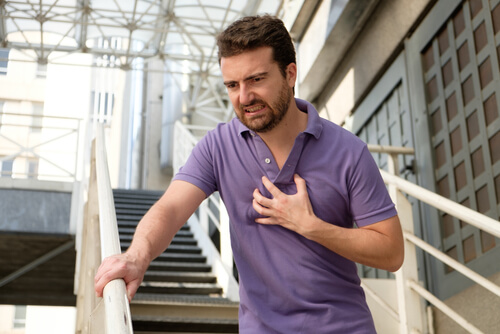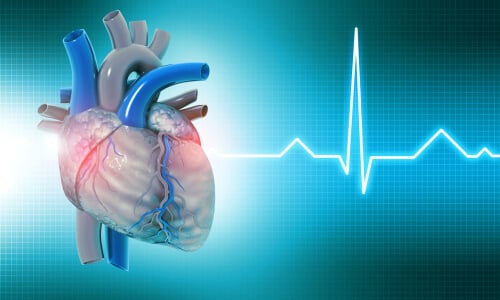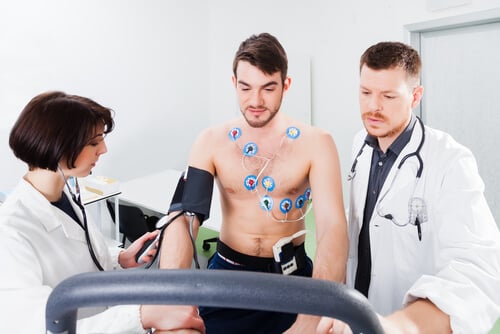
How do I know if it’s anxiety or heart attack?
There is a great crossover in the complaints of panic attack and heart attack making it challenging to differentiate between the two without a full medical examination and special tests like ECG and blood test (Troponin I).
What are the symptoms that occur in both panic attacks and heart attacks?
It includes chest pain, shortness of breath, dizziness, sweating, shakiness, syncope, tingling or a sensation of impending doom.
There is some difference between the two cases:
Panic attack
- Sharp stabbing pain in the middle of the chest.
- Sudden onset or following a stressful event.
- Pain that gets better over time.
- Symptoms that resolve in 20-30 minutes.
- Shortness of breath.
- Shakiness.
- Hands tingling and palpitation.
Heart attack
- Squeezing pain and pressure on the Chest, the pain radiates to the arms, jaw and shoulder blades.
- Sudden onset or onset during physical exertion such as climbing stairs.
- Pain that gets worse over time.
- Longer lasting symptoms.
- Shortness of breath.
- Profound sweating.
- Nausea and vomiting.
The best predictors of the symptoms due to panic attack or heart attack are two:
- The age is under 40.
- any previous history of panic attacks.
Though if the patient is under 40 and has a previous history of panic disorder it is more likely to have panic attacks than older people without a history of panic attacks.
Heart attacks usually occur in middle-aged people and the old age group, especially if they have coronary artery disease or they have risk factors such as hypertension, diabetes, obesity, hyperlipidemia or a history of smoking.
If there is any suspicion, the patient should go to the emergency to rule out a heart attack because “time is muscle” in cardiology. If it is a heart attack, the treatment will rescue the patient from catastrophic results in both the short and long term. We could not deny the negative effect of stress on the heart because it produces high levels of adrenaline, glucose and cortisol.
There is some correlation between severe stress and heart attack e.g. Takotsubo Cardiomyopathy. Anxiety and chest pain may trigger more panic attacks and about one-third of heart attack patients suffer from depression for some time. To reduce anxiety and heart attacks, you should follow healthy mental and physical habits.
Patients with recurrent panic attacks should see a psychologist who can help them to overcome their anxiety and learn how they could relax and breathe in a good manner.
Topic: cardiology




.jpg)



Leave a comment